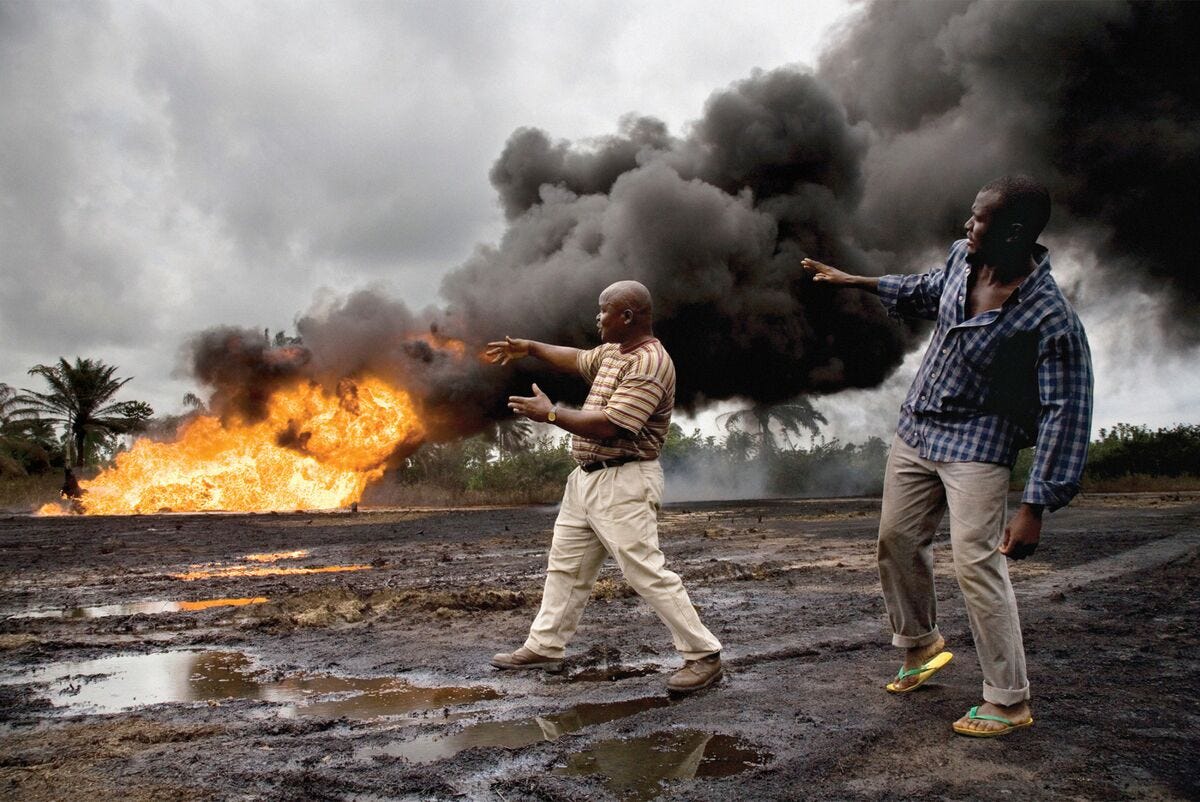
Nigeria, Africa’s most populous country, is a land of breathtaking beauty and rich cultural heritage, but it is also a place where profound contrasts exist. Amidst the vibrant tapestry of its landscapes and communities, one narrative looms large – the story of Royal Dutch Shell and its complex relationship with Nigeria’s oil-rich Niger Delta. In this article, we delve into the depths of this narrative, exploring the intersection of power, pollution, and progress.
Shell’s Penetration: The tale begins with revelations from secret cables released by the US State Department, unveiling Shell’s pervasive influence within Nigerian politics and the oil industry. These cables exposed a web of relationships wherein Shell executives boasted of having access to everything in Nigeria’s oil scene, from decision-making processes to policy shaping. This infiltration of power underscores the extent to which multinational corporations can wield influence in resource-rich nations, often at the expense of local communities and the environment.
Environmental Devastation: Shell’s operations in the Niger Delta have left an indelible mark on the region, characterized by severe pollution, environmental degradation, and human suffering. Oil spills, gas flaring, and deforestation have ravaged the delicate ecosystem of the Delta, contaminating water sources, decimating marine life, and destroying fertile agricultural land. Communities like Bodo in Ogoniland have borne the brunt of Shell’s negligence, facing economic hardship, displacement, and a loss of livelihoods.
Human Tragedies: The story of Shell in Nigeria is not just one of environmental crises but also of human tragedies. The Ogoni people, led by activist Ken Saro-Wiwa, waged a nonviolent struggle against Shell and the Nigerian government, seeking justice for the environmental damage and human rights abuses inflicted upon their community. Saro-Wiwa’s ultimate fate – execution under controversial circumstances – sparked international outrage and intensified scrutiny of Shell’s practices in Nigeria.
Legal Battles and Victories: The path to justice has been long and arduous for communities affected by Shell’s operations. Legal battles, protests, and resistance efforts have sought to hold the company accountable for its actions. In 2015, the Bodo community secured a landmark victory in a London court, receiving £55 million in compensation for oil spills that devastated their livelihoods. However, the road to environmental restoration remains fraught with challenges, as communities grapple with ongoing pollution and systemic issues of governance and corruption.
A Shifting Landscape: Amidst mounting pressure and public scrutiny, Shell has announced its decision to divest from its onshore oil business in Nigeria, marking the end of a turbulent chapter in the country’s history. While this move holds the promise of local economic development and improved environmental practices, it also underscores the need for responsible business conduct and transparent governance in the oil industry.
Charting a Sustainable Future: As Nigeria navigates this pivotal moment, it must seize the opportunity to redefine its relationship with the oil industry and chart a path towards sustainability and equity. The international community must also play a role in holding corporations accountable for their actions and supporting local communities in their quest for justice and environmental restoration.
Conclusion: The story of Shell in Nigeria serves as a cautionary tale of the complex dynamics inherent in resource extraction and corporate influence. It highlights the urgent need for responsible business practices, transparent governance, and genuine community engagement to ensure that the pursuit of profit does not come at the expense of environmental sustainability and human rights. As Nigeria looks to the future, it must learn from the mistakes of the past and strive towards a more equitable and sustainable future for all.
Join the Conversation: What are your thoughts on Shell’s operations in Nigeria? How should the international community respond to the environmental and human rights challenges posed by multinational corporations? Share your perspectives and join the dialogue on creating a more just and sustainable world.



GIPHY App Key not set. Please check settings